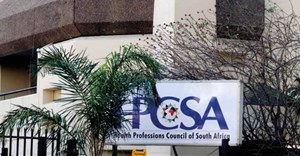Trending
Elections 2024
How complaints against professionals can turn and bite back
What had transpired in the matter was that a psychologist and member of the Health Professionals Council of South Africa (HPCSA) was reported to the HSPCA for being grossly in breach of her professional ethics in that she was not adequately qualified to make a diagnosis of manganism (manganese poisoning) in respect of patients referred to her. The HSPCA received both the complaint and the response thereto, accepted the version of the psychologist and declined to pursue the matter any further. Following this, the psychologist instituted action against the complainant for malicious prosecution.

In hearing the matter, the special plea of prescription was raised unsuccessfully by the complainant, where after the matter was appealed before a full bench of the High Court of the Republic of South Africa. The appeal was unsuccessful and the complainant sought the leave of the Supreme Court of Appeal (SCA).
In its judgment, the SCA reiterated the requirements needed to be met in an action for malicious prosecutions being: the defendant setting the law in motion; without reasonable/probable cause; acting with malice; and that such prosecution in fact failed. The SCA went onto find that prescription in respect of an action for malicious prosecution may only begin running its course from the date when a ruling is issued confirming that the prosecution in question has in fact failed. More importantly, the SCA extended the action for malicious prosecution to instances where a complaint is laid against a professional to the professionals' own statutory regulatory body and as a consequence, the appeal before the SCA was dismissed with costs.
The result of the SCA's ruling in the above matter is that should a malicious complaint be laid against a medical professional before the medical professionals' own regulatory body, such professional, subject to fulfilling the requirements for malicious prosecution, may bring an action against the complainant for malicious prosecution and seek monetary compensation for any loss sustained as a result of the malicious prosecution ultimately, providing professionals with protection against trojan-horsed professional complaints.














